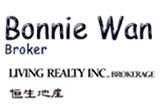The dream of investing in and owning a rental property can bring dollar signs to your eyes – a source of income that requires little work and can help you pay down that 25 year mortgage. What’s not to love?
Being a landlord isn’t all money for nothing, however. After the initial investment that will get your property liveable, there are a few things you need to think about and do before you welcome your first tenants.
You’re Going To Make Money But It’s Not All Profit
Though owing a rental property is a great way to supplement your income, don’t expect to get rich. With the added space and responsibility come a host of extra expenses. On average, you should expect to put the equivalent of a couple months worth of rent away every year just for property maintenance and upkeep of the rental for things like painting and cleaning services when tenants move out, appliance repair, fixture upgrades, etc.
You also need to issue rent receipts to tenants for the rent they pay. They may use it to claim a deduction on their income tax. Even if they don’t claim it, you are expected to declare that rent as income and pay taxes on it accordingly.
While some home renos add value to your home, an optional rental space is not always on that list, especially if the construction is not done with the proper permissions and permits – future owners don’t want to have to contend with that. If they can’t rent it or don’t want to take on that risk, the extra upgrades they don’t want might not be easily integrated into a single family home and they might use this as a negotiating tool to get your asking price down.
Tenants Have Rights – They Know Them & So Should You
Although the rules vary from province to province, all renters in Canada are protected by provincial legislation, and governing bodies and the requirements for eviction are high (with good reason – no one should ever feel like their home can be taken away from them.
Bone up on the Residential Tenancies Act.
Do your research to protect interests but know that you cannot protect yourself from all rental related risk. Asking for first and last months’ rent is fine, but asking for a security deposit to cover any damage incurred over the course of their stay is not allowed in all provinces.
It’s also important you know that not all clauses in a lease are legally binding. Many landlords include a “no pets” or “no children” clause in the lease, to which a tenant agrees to with a signature. But if the tenant later brings home a pet or a baby, you can’t evict them without going through the rental tribunal.
You’ll Want To Become Better Acquainted With Tools
While you won’t have to build a barn from scratch, if you want to become a landlord you should at least learn your way around an electrical panel and how to use a drain snake.
If a tenant confronts even a small problem that they can’t solve, their first line of defence is you. You can save yourself money in the long run by fixing those little problems yourself. Of course, if you are a total klutz or you just don’t have time, consider interviewing contractors who are willing to take on small jobs, or at least keep a list of trustworthy and reliable technicians who are able to drop by at a moments notice to fix those problems you can’t get to.
Landlord Tip: If you buy new appliances for your rental property, splurge on the extended warranties – you’ll thank yourself later.




